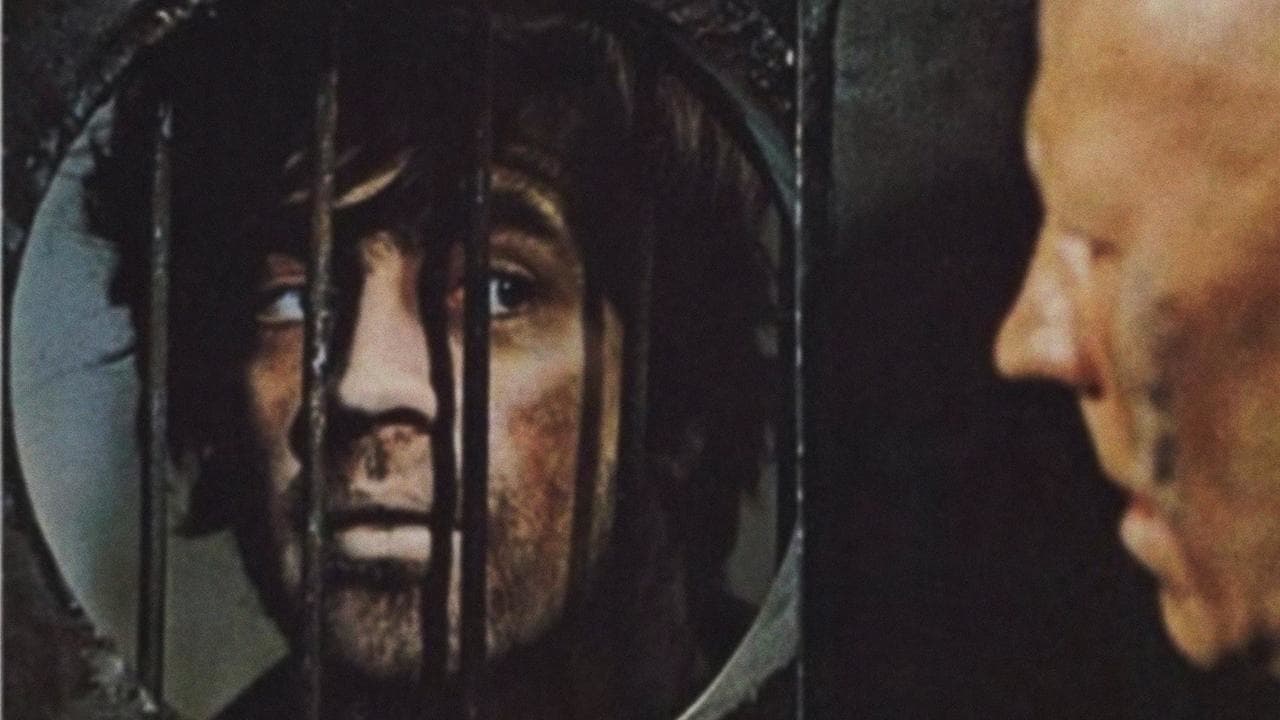

This was Frankenheimer's second big color movie (after Grand Prix in 1966). Alan Bates was nominated for the Academy Award for his portrayal of Yakov Bok, and his performance was certainly Oscar worthy. The movie is based on Bernard Malamud's 1966 Pulitzer Prize winning novel.---------------------------------------------------------------------"Bernard Malamud based The Fixer on the case of Mendel Beilis, a Jewish bookkeeper for a brick factory who was accused of ritualistically murdering a Christian child. With very little evidence against him, the Russian government pushed for the conviction of Beilis in order to justify anti-Semitic policies that were being enacted at the time. The novel's protagonist, Yakov Bok, also works in a brick factory, and he is charged, for no particular reason except being Jewish, for a crime just like the one with which Beilis was charged. As in Malamud's fictionalized version, the actual case occurred between 1911 and 1913 in the Ukrainian capital, Kiev. The Beilis case is credited with being one of the main contributing factors in bringing about the Russian Revolution by raising the sense of distrust Russian citizens felt toward their government and the anger of people around the world. The political situation surrounding the case is hardly touched upon in The Fixer. Most of the book focuses on Yakov's life in solitary confinement, waiting for years in prison for the murder charge to be formally levied against him so that he can get on with the trial.The Fixer was published in 1966, more than fifty years after the Beilis case had been settled in court, but Malamud could count on his audience to be familiar with the circumstances of what had happened because the case was and is an important event in the history of the Jewish struggle for peace and security. The book won the National Book Award and the Pulitzer Prize, and is considered one of the finest in the canon of books by one of America's finest authors." – Quoted from encyclopedia.com--------------------------------------------------The movie follows the odyssey of Yakov Bok (Alan Bates)—'a fixer' or handyman--as he leaves his small pre-Revolutionary Ukrainian town to travel to the city of Kiev. Although he has no strong religious or political feelings and never had thought that he could only be defined by one word--'Jew'--he lives in the ghetto. When a tailor in the ghetto suggests that he could make more money by passing as a Christian in the city, he tries. After saving a Christian, Lebedev (Hugh Griffith), in the street, he is taken in to Levedev's house and given work. Lebedev's crippled daughter, Zinaida (Elizabeth Hartman), seduces him and he willingly follows her. But, when he finds that she is 'unclean (having her period), he turns her down and leaves. But, events change his life when he is accused of killing a young Christian boy in a 'Jewish ritual murder. Once imprisoned, almost everyone inside and outside of the prison hates him. Even though he is befriended by a defender, Bibikov (Dirk Bogarde), he is relentlessly tortured and badgered by his prosecutor, Grubeshov (Ian Holm).During Bok's imprisonment, the case against him is built on a series of unproven accusations. The murdered boy's mother testifies that she witnessed Bok killing her son. Zinaida testifies against him (based on her previous embarrassment of having seduced him and then been turned down). However, as a Jew, he is never given the benefit of a public trial. His crime rests on the fact that he IS a Jew; that he reads Spinoza; and that he demands—and is refused--a trial for simple human decency. As his imprisonment and torture is extended he continues to grow more determined. When all attempts fail to get him to confess to the murder, a representative of the Czar offers him a pardon. But, he refuses the pardon since he has committed no crime. His determination to fight for a public trail continues until the very end. Although this film is very good, it doesn't hold up as well as Frankenheimer's black and white movies from the 1960s. As the saying goes, 'the book is better than the movie,' Still, Bates acting is laudable and should be seen if possible.
... View MoreJohn Frankenheimer's sometimes overwrought but mostly powerful version of Bernard Malamud's novel stars Alan Bates as a Jewish handyman in Tsarist Russia who faces myriad charges when he attempts to pass himself off as a Christian. Not always easy to sit through, the film throws horror after horror at Bates, who goes from sneaky to self-righteous to insane to martyr. Bates gives a towering performance and the strong supporting cast includes Dirk Borgarde as his (oddly debonair) lawyer, Georgia Brown as the sleazy mother of a murdered boy and Hugh Griffith as a drunken anti-Semite. Elizabeth Hartman is strangely cast as Giffith's amorous daughter. David Warner and Ian Holm are in it too and there's a very outré cameo by Murray Melvin as a priest (hoping to convert the very uninterested Bates). Frankenheimer and scriptwriter Dalton Trumbo do a very good job recreating a really horrible time in Russian history and the Hungarian countryside makes a good substitute as a decidedly cold Kiev. There's stunning cinematography by Marcel Grignon. The chilling music score by Maurice Jarre is marred by some really shrieking violin solos.
... View MoreI came home from work after working a 24 hour shift and turned on the TV to find something mindless to numb my brain (ready to do the same thing tomorrow), and turned on this film, I had to watch it to the end. The story is simple enough, its the tale of someone who is wrongly accused of a crime in order to satisfy someones higher political manifesto but there's an ageless quality to it. I'm not particularly clued up on films or politics, and certainly not a critic but I have to say that in these times of arrest without trial or evidence, this film strikes a chord. This film highlights some of the best and worst aspects inherent to human nature, a truly remarkable work.
... View MoreAn interesting picture. The portrait of a friendly, non-political Jew captured and accused for ridiculous crimes he did not, and for religious reasons, could not commit. It leaves you with a feeling of anger because of the inhumanity of men towards men. Enjoy!
... View More